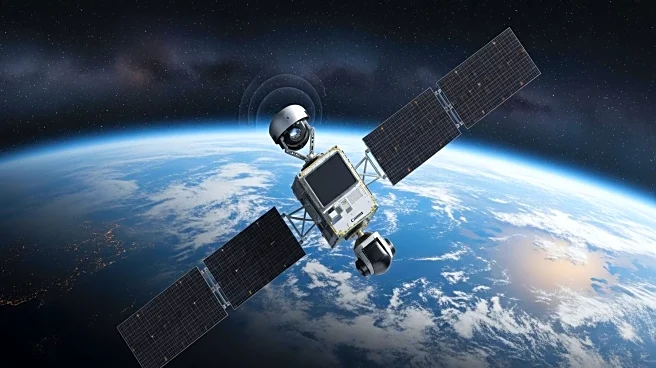What is the story about?
What's Happening?
A Maxar Intelligence executive, Susanne Hake, has expressed concerns over the U.S. government's proposed budget cuts to commercial satellite imagery funding. Speaking at an aerospace industry conference, Hake highlighted the importance of commercial imagery for U.S. combatant commands, including the Indo-Pacific Command, which have indicated a growing demand for such imagery. The Trump administration's 2026 budget proposal includes a 30% reduction in the National Reconnaissance Office's procurement of commercial electro-optical imagery and the elimination of funding for synthetic aperture radar imagery. These cuts have raised alarms within the industry, as commercial firms have demonstrated their ability to deliver imagery faster and at lower costs than government satellites.
Why It's Important?
The proposed budget cuts could significantly impact the U.S. commercial remote sensing industry, which plays a crucial role in national security operations. Commercial imagery providers like Maxar have been integral in supplying high-resolution imagery that supports military and intelligence activities. The reduction in funding may hinder the industry's ability to invest in technology and maintain its competitive edge, especially as international competitors like China continue to invest in their own remote sensing capabilities. The cuts could reverse progress made in integrating commercial services into national security operations, potentially affecting the U.S.'s strategic advantage.
What's Next?
The industry is actively lobbying Congress to reconsider the proposed budget cuts. CEOs from major commercial imagery firms have already written to lawmakers, emphasizing the need for sustained investment to maintain technological advancements and national security capabilities. As appropriators deliberate on the budget, the industry is likely to continue its efforts to restore funding, highlighting the immediate availability and proven effectiveness of commercial imagery compared to bespoke government systems.
Beyond the Headlines
The budget cuts raise broader questions about the U.S. government's approach to leveraging commercial technology for national security. The decision to reduce funding for commercial imagery could signal a shift towards more classified, government-controlled systems, potentially limiting innovation and collaboration with private sector firms. Additionally, the cuts could affect the U.S.'s ability to compete globally in the remote sensing market, where other nations are rapidly advancing their capabilities.















